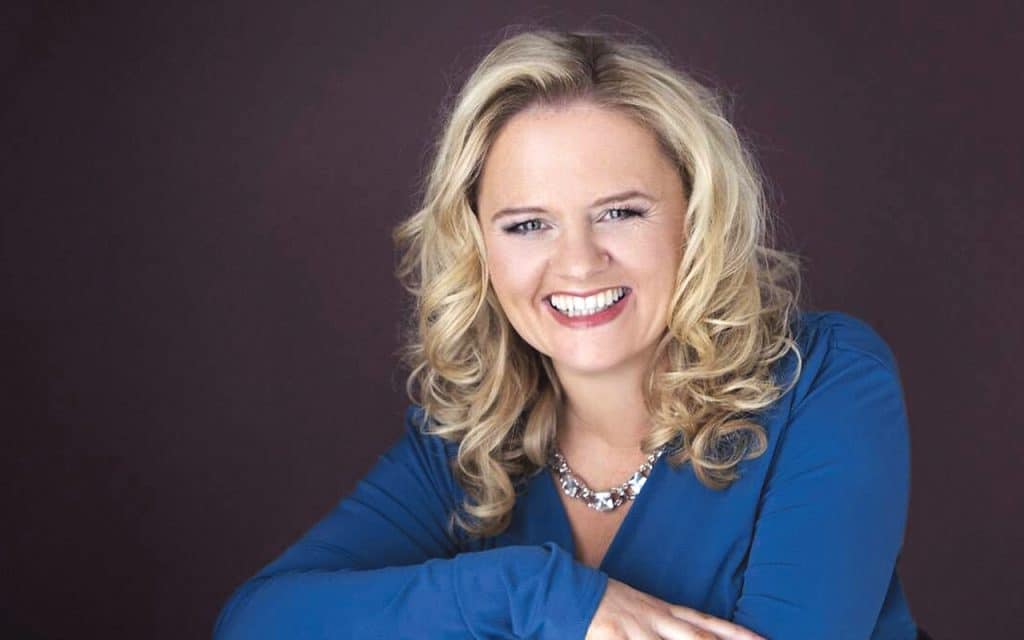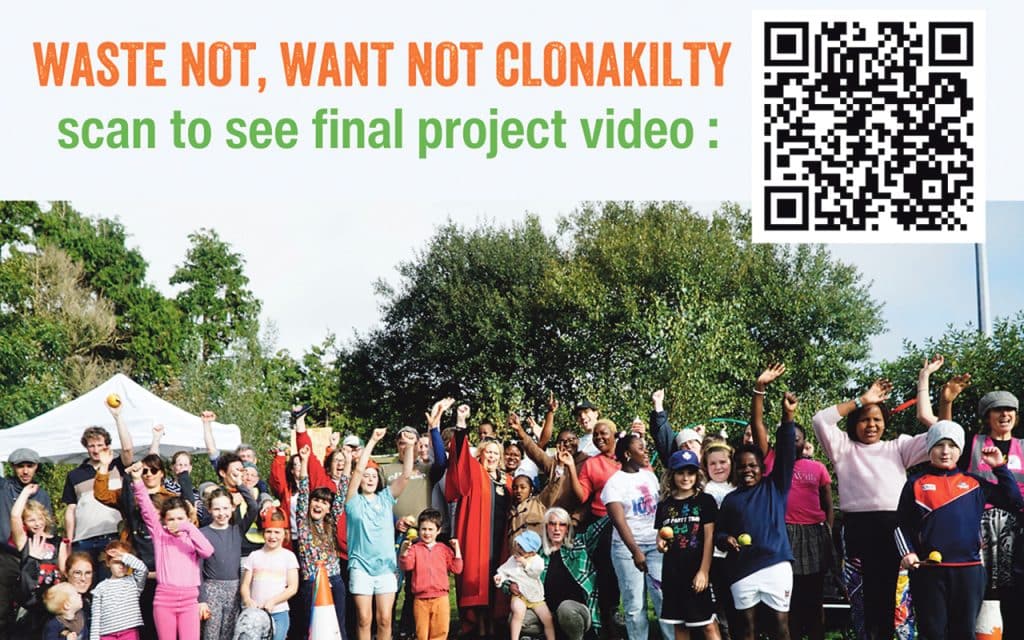Learning she was autistic at the age of 37 was life-changing for Evaleen Whelton, a speech and drama teacher who went on to found Ausome Training, a pioneering organisation based in Bandon that challenges stereotypes and empowers autistic individuals through mentoring and training. Over the past decade, Ausome Training has been at the forefront of redefining autism writes Mary O’Brien, advocating for a more inclusive and accurate understanding of the autistic experience.

One of the central principles of Evaleen’s work is questioning society’s concept of ‘normal’ “Different to what?” she asks. “Who are we comparing ourselves to?” This fundamental question drives the mission of Ausome Training: to shift the focus away from outdated, deficit-based views of autism and challenge the idea of ‘diagnoses’.
Rather than viewing autism as a disorder, Evaleen reframes it as a difference in sensory processing. “The research and science show that being autistic means we’re really just more sensitive,” she explains. “We take in more information.” This heightened sensitivity influences everything from sensory perception to communication styles, yet it is often misunderstood and pathologised.
“I work for the liberation of sensitive people, moving from a medical or pathological model to a human rights model,” explains Evaleen. “There is nothing to diagnose.”
Evaleen sheds light on why autistic individuals experience the world differently. “Scientific research has shown that autistic people’s pupils dilate at a different rate, affecting how they perceive light,” she explains. “This physiological difference can make environments feel overwhelmingly bright or visually intense.” Similarly, sound sensitivities vary based on context; background noise that others filter out may be intensely distracting to an autistic person.
A common misconception is that only autistic people stim (make repetitive body movements) but it’s actually something we all do. “It can be as simple as biting your nails, pacing, clapping, or even laughing at a football match,” shares Evaleen. “It’s a way of expressing emotions, self-soothing, or staying focused. When someone taps to show appreciation or gestures while speaking, that’s stimming too.”
Growing up, Evaleen experienced headaches from the lighting in school classrooms, a common challenge for autistic individuals. Despite these difficulties, she excelled academically, often absorbing information rapidly but struggling with conventional classroom expectations. Teachers misinterpreted her learning style, believing she was inattentive when, in reality, she was simply processing information differently. “Where’s the research to show you can only learn by sitting still?” she points out.
Many autistic individuals are deep thinkers who are profoundly affected by the world around them. This is particularly important in education, where teachers must consider how certain subjects – such as history or current events – can deeply impact autistic students. “You’ve got to be really careful how you give these kids this information. Otherwise, you’ll have them awake at night, traumatised by it,” Evaleen notes. “A lot of times, what looks like an overreaction in a child is actually them being triggered by something that deeply affects them.”
A significant part of the autistic experience, particularly for those identified later in life, is masking – the act of suppressing natural behaviours to conform to societal expectations. Evaleen describes it as presenting a “cardboard version” of herself, constantly filtering responses and adapting to what she thought others wanted to hear.
Masking often begins in early childhood as a survival mechanism in an environment that does not accommodate autistic needs. It leads to exhaustion, anxiety, and, ultimately, a loss of self-identity. For Evaleen, the realisation of how deeply ingrained this masking was came after the birth of her child, when the pressures of motherhood intensified her struggles and led to her identification as autistic.
She shares that one of the biggest misconceptions about autistic individuals is that they lack social skills. In reality, the issue lies in a fundamental difference in communication styles, a concept known as the ‘double empathy problem’. Research has shown that within milliseconds of meeting someone, non-autistic individuals often make subconscious judgments that lead to social exclusion.
“It’s actually the judgment that becomes the problem,” Evaleen explains. “If we all understood that people communicate in different ways, we would meet each other with more kindness and curiosity.”
Another misconception that Evaleen and Ausome Training work to dismantle is the idea of ‘severe’ autism.
Many of the behaviours associated with ‘severe autism’ are related to add-on conditions, such as apraxia, or in fact are responses to an unsuitable environment.
A key principle of Ausome Training is the understanding that autistic individuals are deeply affected by their environment. “Dr. Luke Beardon, an autism specialist in the UK, emphasises a simple equation: autism plus environment equals outcome,” shares Evaleen. The right environment can allow an autistic person to thrive, while a poorly suited one can lead to distress and dysregulation.
Changes in sensory stimuli, routines, and expectations can dramatically impact an autistic person’s well-being. By shifting the focus from ‘fixing’ autistic individuals to adapting environments to meet their needs, society can foster inclusivity and acceptance.
Ausome Training aims to break down these barriers by providing education on neurodivergent communication, helping to bridge the gap between autistic and non-autistic individuals, working to empower autistic individuals rather than force them to conform.
Evaleen emphasises the importance of equipping professionals – especially educators and mental health workers – with the knowledge they need to truly support autistic individuals. “We mainly train professionals because that’s where real change will happen,” she explains. “A lot of people already know what ‘not’ to do, but they come to us for the ‘what to do’ – that’s where we come in.”
The organisation runs courses for teachers, mental health professionals, and even medical practitioners. “We’re trying to get GPs to come to our conferences because they’re the first point of contact for a lot of families,” she says. “Parents need their child to be identified as being autistic in an affirming way, not as a tragedy. That initial conversation can shape how they view their child and their relationship going forward.
“A lot of what people think is autistic behaviour is just human behaviour,” says Evaleen. “We are so conditioned to think there’s only one kind of right way to exist but if we change how we view and accommodate autistic individuals, we change their entire experience.”
Additionally, Evaleen challenges the false notion that autism rates are increasing. “It’s just better identifying criteria,” she says. “We’re finally recognising autistic people instead of misdiagnosing them or missing them altogether.”
Despite progress, misinformation about autism persists. “There’s so much wasted money on rubbish research, things that have been debunked a million times,” Evaleen says. “We should be focusing on how to make life better for autistic people, not on outdated theories.”
She highlights the importance of listening to autistic voices. “If you go on social media, autistic people are explaining this stuff every day. The information is out there – it just needs to be heard.”
Ausome Training is at the forefront of this movement, advocating for an inclusive, research-informed, and autistic-led approach to understanding autism. Through their work, Evaleen and her team are ensuring that being autistic is no longer seen as something to ‘fix’ – but rather, something to embrace and support.
The Minding Autistic Minds Conference 2025 – a conference by autistics for everyone, takes place at the Osprey Hotel, Naas in Co. Kildare and online on Friday, April 25 and Saturday, April 26, from 9am-5.30pm.
For more information and tickets, visit AusomeTraining.com.



